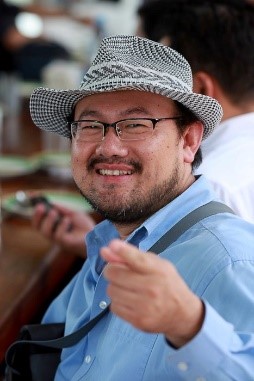PRAGMA31 Panel Discussion “e-Science in the Cloud: Possibilities and Challenges”
Dr. Jose A.B. Fortes
 | José A.B. Fortes received the Ph.D. degree in Electrical Engineering from the University of Southern California, Los Angeles in 1984. From 1984 until 2001 he was on the faculty of the School of Electrical Engineering of Purdue University at West Lafayette, Indiana. In 2001 he joined both the Department of Electrical and Computer Engineering and the Department of Computer and Information Science and Engineering of the University of Florida as Professor and BellSouth Eminent Scholar. From July 1989 through July 1990 he served at the National Science Foundation as director of the Microelectronics Systems Architecture program. His research interests are in the areas of distributed computing, autonomic computing, computer arch-itecture, parallel processing and fault-tolerant computing. He has authored or coauthored over 200 technical papers and has lead the development and deployment of Cloud and Grid-computing software used in several cyberinfrastructures for e-Science and digital government. Dr. Fortes is currently one of the three founders of an NSF-funded partnership and evolving framework, called Collaborations to Enable Transnational Cyberinfrastructure Applications (CENTRA), for collaborations amongst research institutes and laboratories across the world. |
Panelists
 | Phil Papadopoulos received his Ph.D. in Electrical and Computer Engineering from UC Santa Barbara and is an associate research scientist of the San Diego Supercomputer Center based at the University of California, San Diego. Dr. Papadopoulos is an internationally recognized expert in cyberinfrastructure middleware development. The Rocks cluster toolkit software he has developed over the past decade is the de facto standard for managing research clusters for computation and data management, and is in use in over a thousand academic and industrial sites. Dr. Papadopoulous seeks to address the fundamental engineering question about how to build high-performance complex computing and data systems in a repeatable manner. He is currently principal investigator for the NSF PRAGMA project. |
 | Paul Hanson’s research interests include: Carbon cycling: Lakes play important roles in carbon cycling at the watershed, regional, and even global scales. His research in carbon cycling focuses on how ecosystem processes alter these balances across different space and time scales in different ways among lakes of the world. Dr. Hanson’s general interest in ecological scaling issues underlies recent work in cross-scale analyses of lake data sets. Ecological data are inherently messy and tend to show pattern at multiple scales — a phenomenon especially evident in data from sensor networks. Understanding controls over that variability presents analytical challenges that benefit from signal processing tools, such as wavelet transforms, spectral analysis, and other system identification approaches. The payoff has been a clearer picture of, e.g., how dissolved oxygen in lakes is controlled by internal waves at short time scales, metabolism at days to weeks, and long-term weather oscillations at decades. Such approaches also show promise for developing scaling laws governing, e.g., phytoplankton dynamics. Microbes, algae, and even fish. |
Through partnerships with microbial ecologists and physical limnologists at the University of Wisconsin and in the Global Lake Ecological Observatory Network (GLEON), Dr. Hanson’s team in PRAGMA is using high-tech sensor network measurements, coupled physical-chemical-biological models, and signal processing to study the vagaries of microbial dynamics. He has developed multi-disciplinary collaborations with computer scientists, atmospheric scientists, and hydrologists support compute-intensive analyses that cross traditional ecosystem boundaries. |
 | Krisanadej Jaroensutasinee received Ph.D. degree in physics from University of Warwick in 1994. He joined Walailak University in 1998, an assistant professor at the School of Science in 2001, and an associate professor in 2008. Dr. Jaroensutasinee’s research interest is in incorporating mathematics and computational science in explaining ecology. One of his work is deploy sensor networks at Racha Yai Island, south of Phuket, to monitor and manage coastal systems, including coral reefs. The project seeks to research environment changes on coral reefs, which are known to be the most complex, species rich and productive marine ecosystems on Earth, making them important not only to tourism and fisheries, but also as environmental indicators. |
They have thus earned priority for conservation and have become a major concern for sustainable development. Dr. Jaroensutasinee also joined the Coral Reef Environmental Observation Network (Creon), a group of international institutes made up of scientists and engineers aiming to develop tools for coral reef studies. (http://www.ioseaturtles.org/headline_detail.php?id=2451) |
